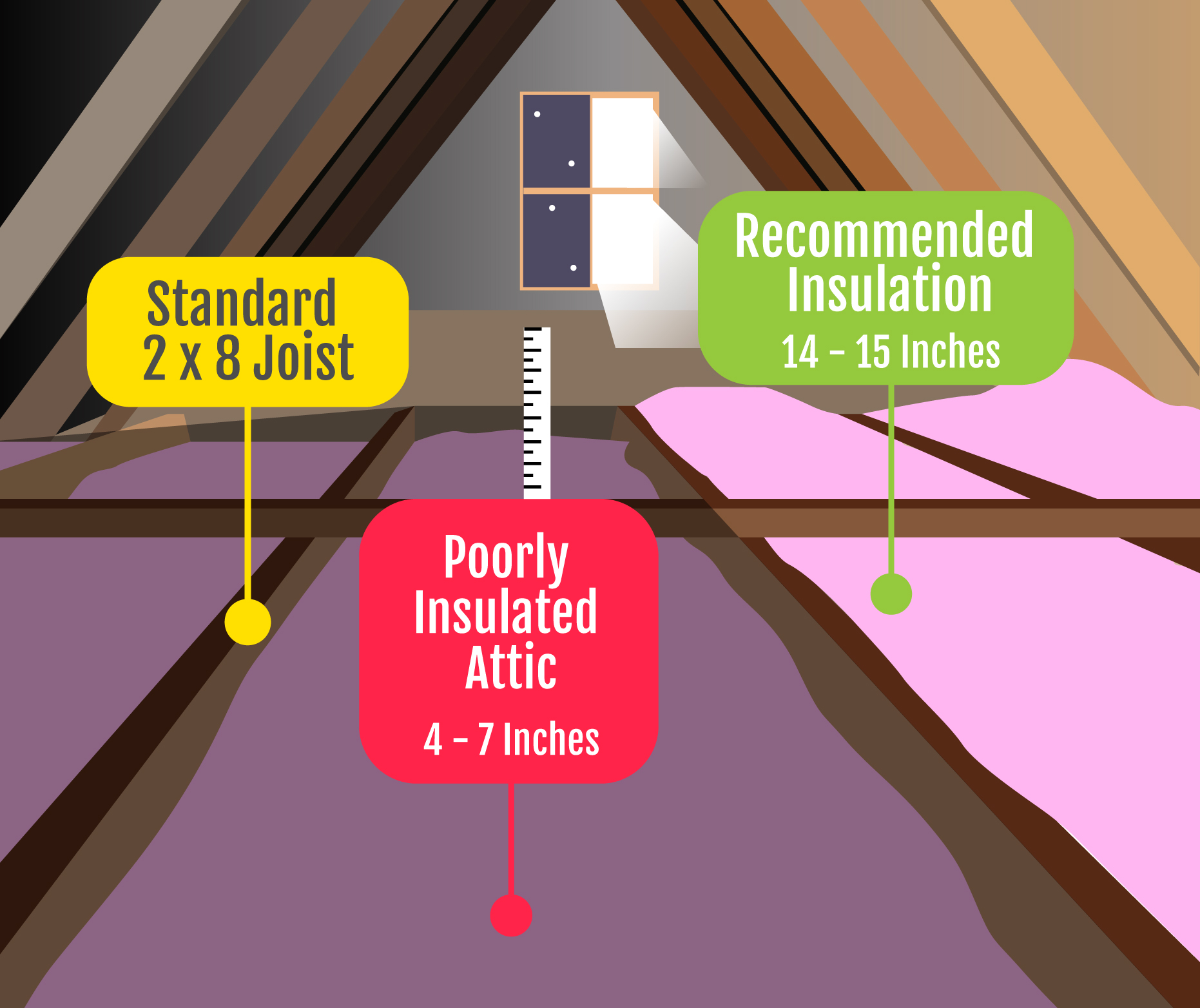
What is Dense Pack Insulation & The Benefits | Koala Insulation
Dense Pack Insulation in Walls of Residential Homes
Are you looking for a way to reduce your residential energy bills? If you are, this is your cue.
Summers in Michigan cities and towns like Birch Run, Swartz Creek, Grand Blanc, Frankenmuth, Fenton, Lapeer, Mt Pleasant and others are humid; winters are cold, niveous, and blustery; and the weather is partly overcast all year. Koala Insulation of Mid-Michigan offers you dense packing with cellulose insulation to make your stay at your home much more comfortable with just a one-time investment.
Dense-packed cellulose insulation allows you to maintain an optimal room temperature all year round. Thus, lowers your dependence on electronic devices to ensure comfort.
This article will tell you everything you need to know about this insulation technology and help you make a wise choice!
What is Dense Pack Cellulose Insulation?
One of the oldest forms of house insulation is cellulose insulation. Cellulose is a sort of loose-fill insulating material that is available in two varieties: wet and dry. It is composed of paper products, predominantly newspaper, but also includes cardboard and other relevant materials thrown in for good measure.
Cellulose insulation is made like a loose-fill substance that is either blown in or thick-packed with the help of a machine. To enhance its R-value, cellulose insulation may be injected into attics. Typically, dense-packed cellulose is utilized to remodel a house or apartment.
Studies suggest that cellulose is the most environmentally friendly alternative because it's made from recycled materials. Koala Insulation of Mid-Michigan provides heat resistance and minimizes sound transmission by densely packing cellulose into wall voids.
What is the R-Value of Dense Pack Cellulose Insulation?
The R-value of an insulating material layer is quantified or graded in light of its resistance to heat transfer; the more the R-value, the better the insulating efficacy.
The R-value of insulation with cellulose is determined mainly by its installed density, with greater R-values often resulting from denser installations. Dense-fill cellulose has an R-value of R-3.5 to R-3.7 per inch.
Many things influence the R-Value, namely settlements, air currents, and external temperature.
What are the Indications That Your Home Needs Dense Pack Insulation?
The outer walls of many residences are a source of energy leakage. The investment in installing insulation to the outer walls pays off handsomely. Old homes may require extra wall insulation for a variety of reasons.
Firstly, the building wall insulation used in many older homes was poor by today's standards. Secondly, conventional fiberglass batt insulation in the walls can droop over time within the wall hollow in many homes.
As a result, conditioned air leaks out, and outer air infiltrates the dwelling. Lastly, outside noise intrusion rises. As a result, residents' quality of life suffers, and their monthly energy expenditures rise.
Why Should You Go for Dense Pack Cellulose Insulation?
Dense Pack Cellulose Insulation comes packed with numerous benefits. Some of the many are listed below:
- R-value: It offers a high R-value ranging from R-3.5 to R-3.7 per inch.
- Fire resistance: It offers an excellent resistance to fire by 22-55%.
- Air control: Windy weather like that of Bay City calls for an effective barrier to air. Although cellulose is not strictly an air barrier, the air-sealing properties of cellulose are effective in retrofit projects when old walls are left untouched, and the cellulose is put through holes drilled in the outside or inside of the home.
All of the factors mentioned above make cellulose insulation a wise and practical choice.
What are the Pros and Cons of Dense Pack Cellulose Insulation over Fiberglass Batt Insulation?
Both dense packed cellulose insulation and fiberglass batt insulation come with their pros and cons. Here are some points of comparison to make your decision-making process easy:
Pros of Dense Pack Cellulose Insulation over Fiberglass Batt Insulation
- Sealing property: Compared to fiberglass, cellulose insulation material has 38% better sealing qualities.
- Wind Washing: Fiberglass is more susceptible to wind than densely packed cellulose.
- Air leakage: Airflow is slowed by cellulose but not by fiberglass.
- Price: Cellulose insulation offers the same R-value as fiberglass with much less expense.
Cons of Dense Pack Cellulose Insulation over Fiberglass Batt Insulation
- Embodied energy: The embodied energy of fiberglass insulation is substantially higher than that of cellulose insulation.
- Installation cost: The cost of installing cellulose, however, might be greater than installing fiberglass.
Even with the cons, cellulose insulation offers a great deal of advantages over fiberglass batt insulation.
Summing Up
Recycled paper is used to make cellulose insulation. No other insulator consumes less energy, recycles more materials, or is less harmful to individuals than cellulose. It has acceptable R-values, resistance to fire, and air control.
Extreme weather conditions make it necessary to insulate your home in cities like Midland, Freeland, Flint, Bay City and Saginaw, Essexville. There is no ideal insulation for each and every case, but cellulose is always the best choice. Koala Insulation of Mid-Michigan ensures that the insulation provided is of top-notch quality and satisfies all of the mentioned benefits.
Ready to book your free insulation evaluation?
We have 3 convienant ways for you to get in touch
We Provide Insulation Services to the Following Mid-Michigan Areas
AUBURN, KAWKAWLIN, LINWOOD, PINCONNING, BAY CITY, UNIVERSITY CENTER, ESSEXVILLE, MUNGER, RHODES, WEBBERVILLE, MOUNT PLEASANT, SHEPHERD, FENTON, FOWLERVILLE, COLEMAN, HOPE, MIDLAND, SANFORD, HOLLY, ORTONVILLE, FREELAND, HEMLOCK, MERRILL, BIRCH RUN, BURT, SAGINAW, SAINT CHARLES, BRIDGEPORT, CARROLLTON, FRANKENMUTH, FAIRGROVE, REESE, VASSAR
Counties Served
BAY, GLADWIN, INGHAM, ISABELLA, LIVINGSTON, MIDLAND, OAKLAND, SAGINAW, TUSCOLA
Zip Code
48611, 48631, 48634, 48650, 48706, 48708, 48710, 48732, 48747, 48652, 48892, 48858, 48883, 48430, 48836, 48618, 48628, 48640, 48642, 48657, 48623, 48626, 48637, 48415, 48417, 48601, 48602, 48603, 48604, 48607, 48609, 48638, 48655, 48722, 48724, 48734, 48787, 48733, 48757, 48768
